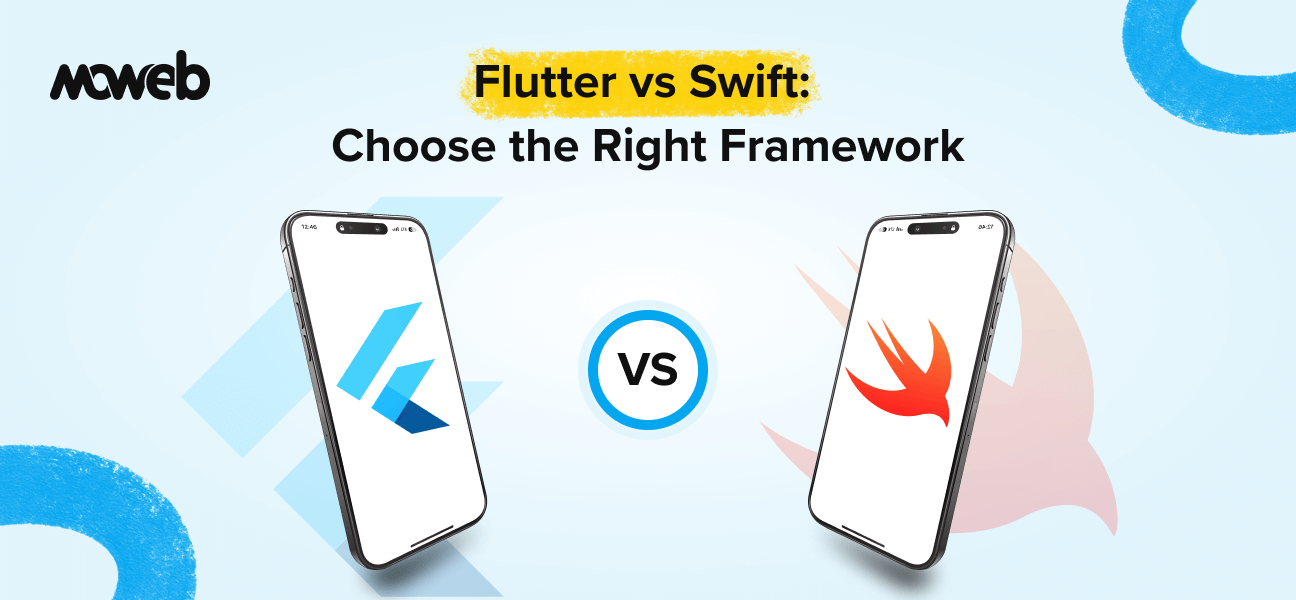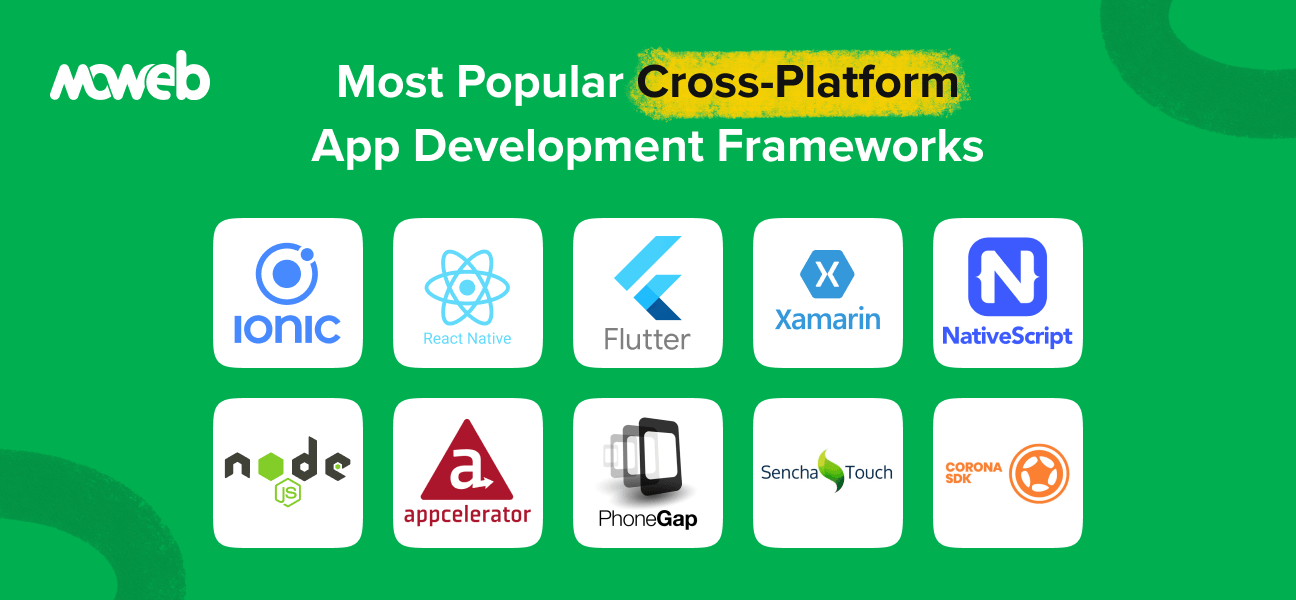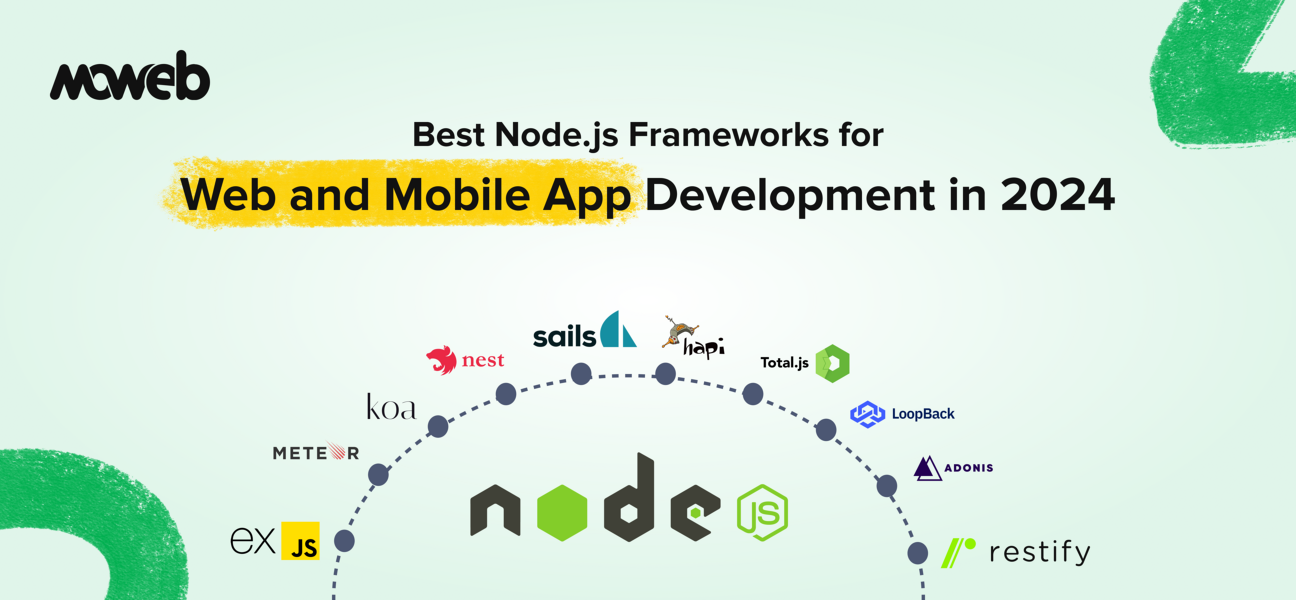
Quick Summary
Node.js has transformed the landscape of web and mobile app development by providing a high-performance, scalable runtime environment powered by JavaScript. One of the key factors behind its success is the wide variety of Node.js frameworks available, each tailored to different types of applications, from real-time data processing to enterprise-level projects. In this blog, we delve into the best Node.js frameworks of 2024 that can enhance your app development process, offering improved scalability, reduced development time, and cost-effective solutions, helping your business stay ahead in the ever-evolving tech landscape.
Introduction
The rise of Node.js as a leading framework for JavaScript app development has transformed how developers build modern, scalable, and high-performance applications. Known for its non-blocking, event-driven architecture, Node.js has become a go-to choice for real-time apps, data-heavy platforms, and cross-platform development. As businesses continue to demand faster, more efficient, and scalable solutions in 2024, selecting the best Node.js framework becomes crucial to project success.
The right framework can significantly impact the development lifecycle, offering enhanced speed, flexibility, and a wealth of features that cater to both Node.js for web development and mobile app development. In this guide, we’ll walk you through the top frameworks for 2024 that are ideal for various business use cases, whether you’re a startup, mid-sized enterprise, or large corporation.
Maximizing Node.js with Specialized Frameworks
Node.js frameworks enhance the power of Node.js by offering a set of tools and features that simplify development processes. These frameworks, built-in JavaScript and designed to operate seamlessly within the Node.js environment, provide crucial functionalities such as routing, database management, security protocols, and template engines. This not only streamlines the development cycle but also allows developers to focus more on the unique logic of the application, without having to rebuild core architecture elements from scratch.
Key Categories of Node.js Frameworks
Node.js frameworks are categorized based on their functionality and the stage of development they cater to. These can be broadly grouped into three categories: Full-Stack MVC Frameworks, MVC Frameworks, and REST API Frameworks. Each category has distinct benefits and serves different types of application development needs.
Comprehensive Full-Stack MVC Frameworks
Full-Stack MVC frameworks for Node.js are versatile, providing a complete toolkit for both frontend and backend development. These frameworks empower developers by including features like scaffolding, template engines, and built-in libraries. Ideal for real-time applications and complex projects, full-stack frameworks facilitate the development of sophisticated, highly functional web apps from a single codebase—making them highly suitable for developers who need to cover all aspects of development.
Efficient MVC Frameworks
MVC (Model-View-Controller) frameworks bring structure to your app development by segmenting the application into three components: Model, View, and Controller. This pattern simplifies the organization of your code, with the Model managing data and business logic, the View controlling the user interface, and the Controller acting as the glue between the two. Express.js is a leading example of an MVC Node.js framework, enabling developers to build robust web applications that are easier to scale and maintain. This separation of concerns ensures smooth updates and future scalability without the complexities of refactoring core code.
REST API Frameworks for Seamless Development
For applications heavily dependent on APIs, REST API frameworks in Node.js are designed to facilitate quick and efficient API development. These frameworks take care of the technical back-end processes such as routing and network communication, freeing up developers to focus on crafting an intuitive, high-performance API. By automating repetitive tasks, they allow teams to deliver RESTful APIs rapidly, which is ideal for projects requiring a connection to remote servers or external services.
Why Choose Node.js for Web and Mobile App Development?
Node.js has become one of the most versatile platforms for both Node.js for web development and mobile app development, offering a wide array of features that make it a preferred choice for developers and businesses alike. Below are some key reasons why Node.js stands out in 2024:
Non-blocking, Event-driven Architecture
Node.js is designed with an event-driven architecture, meaning it doesn’t wait for tasks to complete before moving on to the next one. This non-blocking I/O makes it highly efficient for applications that need to handle multiple connections simultaneously, such as real-time chats, gaming platforms, or live-streaming services.
Scalability
Node.js excels in building scalable web applications by allowing vertical and horizontal scaling, meaning you can scale up your existing infrastructure with minimal resources. Its microservices-based architecture makes it an excellent fit for applications needing quick, scalable growth.
Cross-Platform Development
With frameworks like Meteor.js and Next.js, Node.js supports cross-platform development for both web and mobile apps. This eliminates the need for separate development teams for different platforms, allowing you to build applications for iOS, Android, and web with a single codebase.
Real-Time Data Processing
The ability to handle real-time data streams makes Node.js perfect for applications such as financial dashboards, real-time analytics, and collaborative tools.
Industry Adoption
Node.js is trusted by leading global companies, such as Netflix, Uber, and LinkedIn, for building scalable, high-performance applications. It has cemented its reputation as a robust framework for handling complex architectures.

Let us explore the latest trends in Top Node.js Frameworks for 2024
As the adoption of Node.js continues to grow, its frameworks have proven to significantly enhance development efficiency, performance, and cost-effectiveness. According to recent surveys, Node.js has improved developer productivity to a great extent, drastically cutting down on development time and costs, while also boosting the overall performance of applications. These trends reflect the ever-growing preference for Node.js for web development and Node.js for mobile app development in modern web and mobile application development.
Framework Popularity and Performance Insights
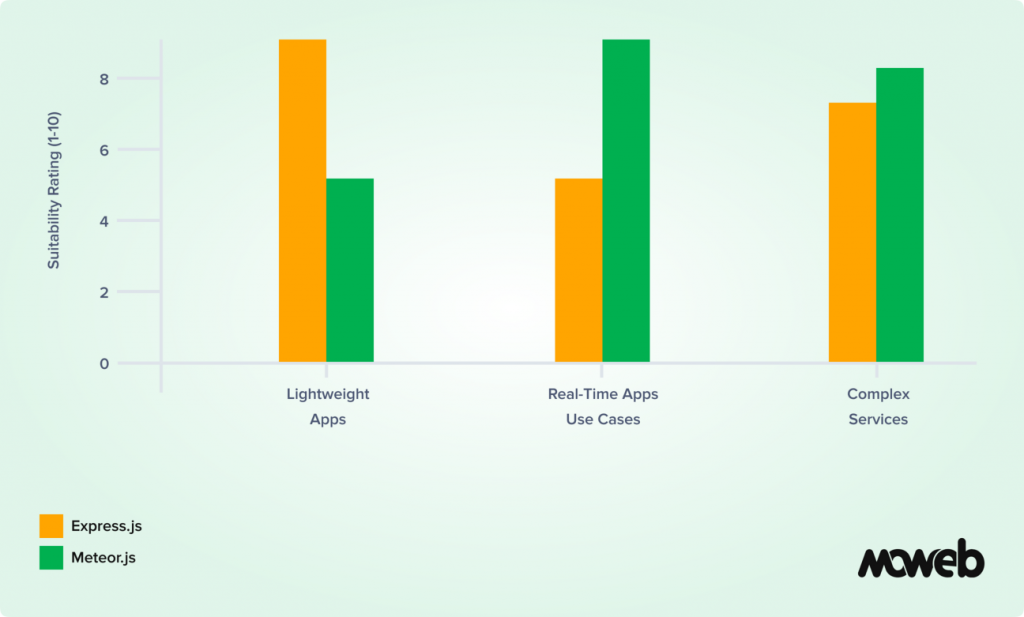
Among the most popular frameworks, Express.js stands out as a minimalist yet powerful web framework. With over 63,800 GitHub stars, Express.js is celebrated for its unopinionated design, offering developers flexibility without enforcing rigid conventions. This has made it the go-to choice for building fast, scalable, and lightweight applications.
Another prominent player is Meteor.js, which has garnered more than 44,000 GitHub stars. This framework shines in real-time app development, particularly for projects requiring features like live updates and large-scale integrations—making it ideal for apps such as chat platforms and complex web services.
Shifting C-Suite Preferences and Emerging Trends
With the rise in development needs, tech leaders and decision-makers are increasingly favoring Node.js frameworks that promise faster development cycles, reduced resource consumption, and quicker time-to-market. As businesses race to deploy high-performance applications, frameworks like Nest.js and Next.js have also gained traction, due to their scalability and support for modern features like server-side rendering and TypeScript integration.
These trends underline a broader shift toward frameworks that prioritize developer productivity, minimize overhead, and streamline the development process—ultimately making Node.js one of the most trusted platforms for modern web and mobile app development.
Best Node.js frameworks of 2024
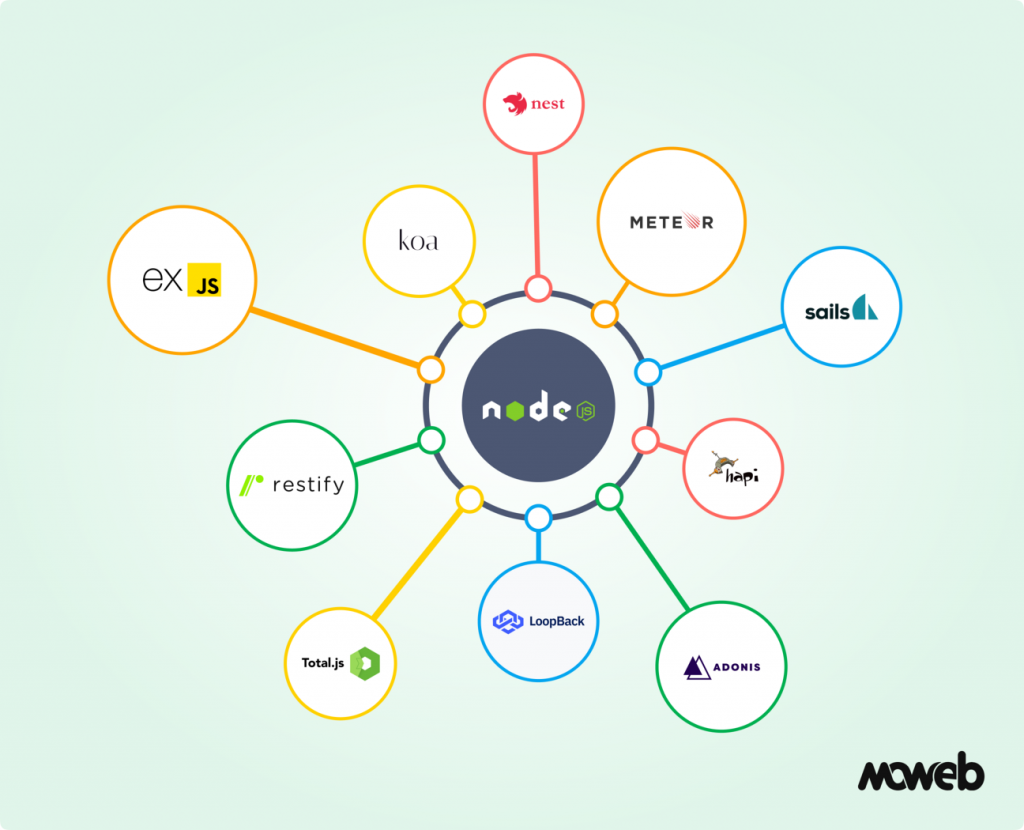
1. Express.js
Express.js is the most widely used Node.js framework, known for its minimalist, flexible design. It allows developers to build web applications and APIs without overwhelming them with unnecessary complexity.
- Ideal For: Single Page Applications (SPAs), RESTful APIs
- Pros: Fast, lightweight, and has a large ecosystem of plugins and extensions
- Cons: Minimal structure can be challenging for large-scale apps
2. Nest.js
Nest.js is a highly modular framework that provides out-of-the-box TypeScript support, making it ideal for building scalable enterprise apps. Nest.js’s architecture is inspired by Angular, and it provides strong tools for creating microservices.
- Ideal For: Scalable enterprise applications, microservices architecture
- Pros: TypeScript support, scalable architecture, well-suited for large projects
- Cons: Complex learning curve for beginners
3. Next.js
Next.js is perfect for web applications that require Server-Side Rendering (SSR) or Static Site Generation (SSG), helping enhance SEO and page load performance. It’s widely adopted by React developers looking for seamless front-end and back-end integration.
- Ideal For: SEO-driven web applications, eCommerce, content-heavy websites
- Pros: SEO optimization, fast page rendering, easy integration with React
- Cons: Primarily focused on front-end development
4. Meteor.js
Meteor.js is a full-stack framework that is popular for building real-time applications and cross-platform mobile apps. Its integrated nature means you can handle everything from the database to the front end without needing external tools.
- Ideal For: Real-time apps, cross-platform mobile apps
- Pros: Built-in support for real-time updates, cross-platform compatibility
- Cons: Limited scalability for extremely large applications
5. Sails.js
Sails.js follows an MVC architecture and is known for its robust support of data-heavy applications and real-time functionalities, such as online games and chat platforms. It integrates seamlessly with a wide variety of databases, making it highly flexible.
- Ideal For: Data-heavy apps, real-time applications
- Pros: Powerful API support, MVC architecture, real-time capabilities
- Cons: Can be over-complicated for smaller applications
6. Koa.js
Koa.js is a minimalist and flexible framework developed by the creators of Express.js, but it takes a modern approach by removing much of the middleware complexity. It is a lightweight option for the developers who want to build smaller, more modular. Koa.js provides an elegant API for handling HTTP responses and is ideal for custom and high-performance middleware stacks.
- Ideal For: Custom, modular apps, smaller web applications
- Pros: Lightweight, flexible, uses modern JavaScript features (async/await)
- Cons: Lacks built-in features, requiring more setup
7. Hapi.js
Hapi.js is a powerful, secure, and configuration-driven framework built with a strong emphasis on security. Used by major companies such as Walmart, Hapi.js is known for its ability to build scalable, maintainable APIs and web applications. It comes with built-in support for input validation, authentication, and caching.
- Ideal For: Enterprise-grade APIs, security-focused apps
- Pros: Security-first approach, highly configurable, suitable for building scalable APIs
- Cons: Slightly slower due to its extensive configuration options
8. LoopBack
An API-centric framework that is ideal for building dynamic REST APIs and connecting with a variety of databases, both relational and NoSQL. It comes with built-in support for multiple database connections. LoopBack also has an intuitive CLI and extensive documentation, making it easy for developers to integrate and scale their applications.
- Ideal For: RESTful APIs, database-driven applications
- Pros: API-centric, supports a wide range of databases, easy-to-use CLI
- Cons: Can be over-engineered for simple applications

Framework Comparison: Which One to Choose?
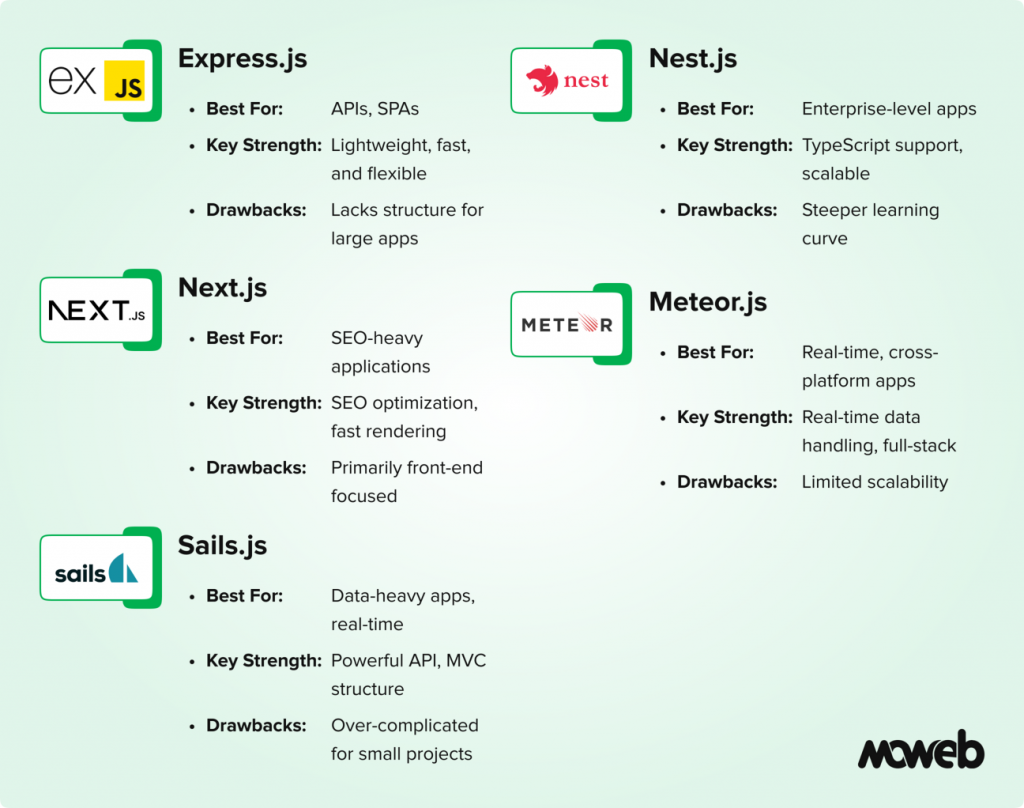
Future Trends in Node.js Frameworks
In 2024, the future of Node.js frameworks will witness significant advancements in Node.js for web development and Node.js for mobile app development, with various trends at the focal point:
- AI and Machine Learning Integration: More frameworks will integrate AI and ML, enabling smarter, more data-driven applications.
- Serverless Architecture: Frameworks like Next.js will lead the charge toward serverless architecture, providing more scalability and cost-efficiency.
- Enhanced Security Features: With growing cyber threats, frameworks like Hapi.js are becoming increasingly important due to their focus on security.
How to Choose the Right Node.js Framework for Your Project
Selecting the right framework boils down to understanding your project’s requirements. Here’s a quick guide to help you decide:
- Project Size: For large, scalable applications, Nest.js and Sails.js are the best choices due to their robust architecture.
- Real-Time Requirements: If real-time features are crucial, go for Meteor.js or Sails.js.
- SEO Needs: If your app is SEO-heavy, Next.js is ideal with its server-side rendering capabilities.
- Security: For projects that require high security, Hapi.js should be your go-to framework.
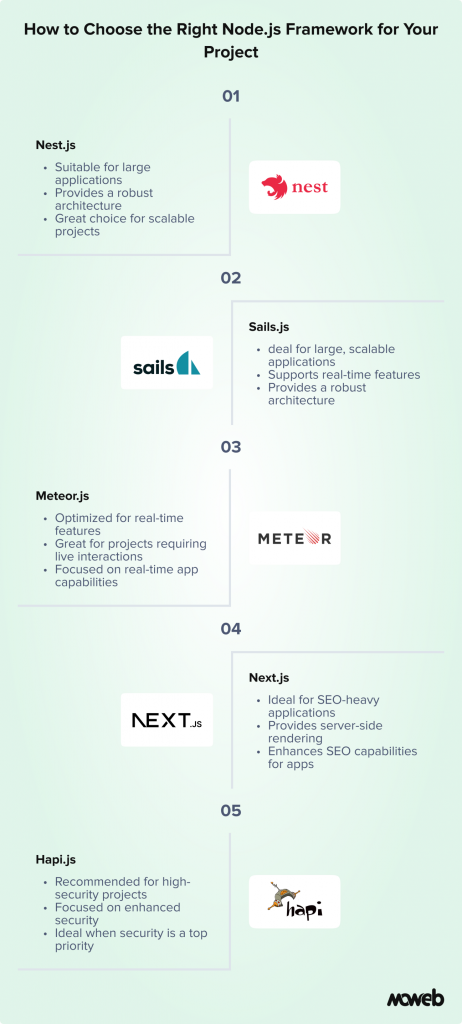
Choosing the right Node.js framework for your 2024 project is a critical decision. Whether you prioritize scalability, real-time capabilities, or SEO optimization, there’s a framework that fits your needs. By leveraging these top frameworks, you can ensure your web and mobile app development projects are efficient, future-proof, and built for success.
The Road Ahead: What’s Next for Node.js Frameworks?
As Node.js frameworks continue to advance, they provide a wide array of tools that simplify and accelerate the app development process. Whether it’s the scalability of Express.js or the real-time communication offered by Socket.io, each framework brings something unique to the table, catering to a wide range of project needs. Looking toward the future, the app development landscape is set to be transformed further by these frameworks.
With emerging technologies like GraphQL and WebAssembly on the horizon, Node.js frameworks are expected to adapt, offering even greater flexibility and efficiency for modern web applications. These frameworks will evolve to meet the increasing demand for performance, scalability, and innovation in app development.
Whether you’re a seasoned Node.js developer or just starting, the future offers endless possibilities to create dynamic, high-performing applications. Ready to explore these opportunities? Our Node.js development company is here to help you harness the full power of these top frameworks.
Jump in and start building the future today!

FAQs
1. What are the best Node.js frameworks for web and mobile app development in 2024?
The best Node.js frameworks for web and mobile app development in 2024 include Express.js, Nest.js, Next.js, Meteor.js, Sails.js, Koa.js, Hapi.js, and LoopBack. Each of these frameworks serves different purposes based on project requirements. Express.js is lightweight and ideal for APIs, while Nest.js supports TypeScript and is perfect for large-scale enterprise apps. Next.js focuses on SEO-driven web apps, Meteor.js excels in real-time applications, and LoopBack is best for API development. Choosing the right framework depends on your specific needs for scalability, real-time data handling, and security.
2. Why should I choose Node.js for web and mobile app development?
Node.js is an excellent choice for web and mobile app development because of its non-blocking, event-driven architecture, making it highly efficient for real-time data processing. It is scalable, supports cross-platform development, and is ideal for applications requiring rapid data streams, like financial dashboards and live-chat applications. Node.js frameworks like Express.js and Next.js also help improve performance and reduce development time, making it the go-to platform for businesses looking for speed, flexibility, and scalability.
3. Which Node.js framework should I use for building RESTful APIs?
For building RESTful APIs, LoopBack and Express.js are among the top choices. LoopBack is an API-centric framework that supports multiple databases, allowing you to create scalable and dynamic REST APIs quickly. It comes with built-in features for easy database connections, making it ideal for database-driven applications. Express.js, on the other hand, offers a lightweight and flexible solution for developing APIs and is widely used for creating efficient and simple RESTful services.
4. How do I choose the right Node.js framework for my project in 2024?
Choosing the right Node.js framework for your project in 2024 depends on your project’s requirements. If you’re working on a large, scalable enterprise application, Nest.js and Sails.js are suitable for handling complex backends with robust architectures. For projects requiring real-time data handling, Meteor.js or Sails.js are ideal. If SEO optimization and server-side rendering are critical, Next.js should be your framework of choice. Additionally, if security is a top priority, Hapi.js is built with a focus on secure application development.
5. What are the latest trends in Node.js frameworks for 2024?
In 2024, the latest trends in Node.js frameworks focus on AI and machine learning integration, serverless architecture, and enhanced security features. Frameworks like Next.js are leading the way with server-side rendering and static site generation, helping developers build SEO-optimized applications. Additionally, security-centric frameworks like Hapi.js are gaining popularity due to the increasing demand for secure APIs. With the rise of technologies like GraphQL and WebAssembly, Node.js frameworks will continue evolving to meet modern application demands.
6. What is the best Node.js framework for building real-time apps in 2024?
For building real-time applications in 2024, Meteor.js and Sails.js are top contenders. Meteor.js excels at real-time updates, making it perfect for chat applications, collaborative tools, and live data dashboards. Sails.js also supports real-time communication through WebSockets, which is ideal for developing real-time games and apps requiring fast updates across multiple users. Both frameworks provide built-in features that simplify real-time data handling.
7. What are the future trends expected in Node.js frameworks?
The future of Node.js frameworks looks promising, with a focus on integrating AI, machine learning, and serverless architecture. Frameworks like Next.js are leading the push toward serverless web development, offering scalability and cost-efficiency. Additionally, with the rise of WebAssembly, we expect frameworks to become more efficient in handling complex tasks and improving performance. Enhanced security features are also on the rise, making frameworks like Hapi.js crucial for developing secure web applications.
Found this post insightful? Don’t forget to share it with your network!



